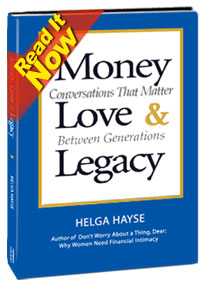Jerry Lewis died last month at the age of 91. He is survived by an ex-wife, a current wife, five sons, an adopted daughter and a biological daughter whom he never acknowledged as his. His estate is estimated to be $50 million.
He also left a will, not as part of a trust, which would have kept the will private, but as a public document available to anyone who wants to view it.
One of the provisions in Lewis’ will states: “I have intentionally excluded GARY LEWIS, RONALD LEWIS, ANTHONY JOSEPH LEWIS, CHRISTOPHER JOSEPH LEWIS, SCOTT ANTHONY LEWIS and JOSEPH CHRISTOPHER LEWIS and their descendants as beneficiaries of my estate, it being my intention to that they shall receive no benefits hereunder.”
So I couldn’t help wondering…Did Lewis’ attorney not advise the comedian about creating a trust and keeping his will and his intention to disinherit private? Or did the attorney advise him, but Lewis wanted to publically punish his children? Maybe he wanted to pay them back for not treating him the way he believed he should be treated.
We may never know the real reason for Lewis’ decision to disinherit all the children of his first marriage. His sons have said that their father was hard to get along with, an abusive man who beat them, silenced them and always put himself and his needs first. His ex-wife testified in divorce proceedings that he was a control freak who kept her financially and psychologically dependent.
Too bad. The world could have remembered Lewis for the talented comedian and film producer that he was. If he had set up a trust, he could have expressed his displeasure and wishes privately. When a person allows a will to go through probate, as Lewis did, and the will specifically states that children and their descendants are disinherited, it is the saddest and most visible evidence of a parent/child relationship gone wrong.

